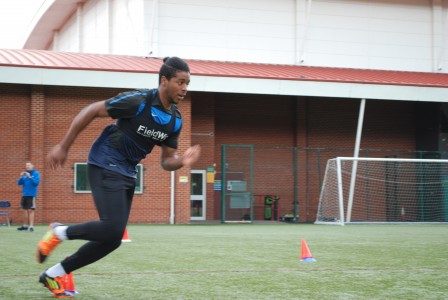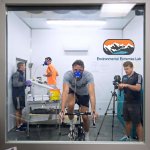Field Wiz GPS
Ash Willmott led a team to test the validity and reliability of the new Field Wiz GPS.
Recent advances in wearable technology, in particular global positioning systems (GPS), enable precise measurement of athlete movement patterns and physical demands, which allow for prompt and detailed data collection, in addition to live analysis.
Sports scientists, strength & conditioning trainers, and coaches alike, use this quantitative data to help establish the internal and external loads of training and competition in a variety of sports.
Information obtained by such GPS during training provide a detailed analysis, in order to tailor periodized training programs, reduce the likelihood of injury and attempt to optimize future performances
Moreover, during live competition, coaches are able to analyse specific positional demands and individual performances, offering real-time feedback which may help influence the outcome of the match.
While assessing the validity and reliability of the new Field Wiz GPS devices, many variables were collected and analysed against other leading devices and known distances, including speed intervals and total distance covered during an array of movement protocols, including straight line sprint drills, change of direction courses and simulated circuits which replicate team sport movement patterns.
The validity of a new GPS device is necessary to reflect how accurately it measures the intended distance and, or speed, which is vital for sports application to athletes during training and competition.
Similarly, the reliability of a GPS device is vital while comparing across players and training days during various interventions and training periods, to ensure the apparent change in performance outcome is due to the adaptation from training and not measurement or participant error.
This pilot research provides evidence that the Field Wiz GPS provides an acceptable level of both validity and reliability for measuring distance and varying movement patterns at low to high speeds across variable running circuits


































